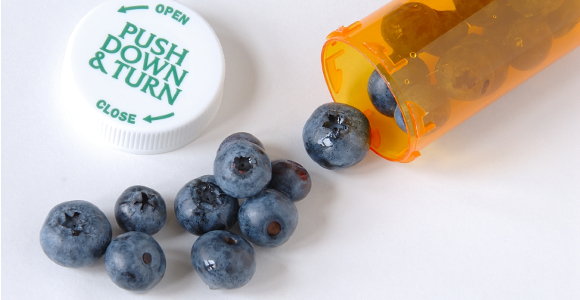The emergence of new developments in the science of nutrition has put a lot of focus on anthocyanidins and similar kinds of nutrients found in plants and natural foods. Knowing more about these various kinds of elements and their health risks and benefits can help individual consumers and families make the most of what nutritional experts are finding out (about how much our diets affect our overall health).
What Are Anthocyanidins?Anthocyanidins are a specific kind of element involved in plant life. They are the pigments of a plants' seeds, berries or other parts. Nutritionists frequently tell the public that brightly colored foods in a raw and unprocessed form are among the most healthy food choices. They will enhance the body's resistance to a whole range of conditions and challenges. Anthocyanidins are a vital part of this idea.
Anthocyanidins are part of a general class of chemical elements called flavonoids or bioflavonoids. The big deal about these nutrients is their antioxidant values. Antioxidants help the body to combat some destructive elements known as "free radicals" that attack the body in various ways. Antioxidants are good for the blood, the circulatory system, the heart and lungs, and other parts of the body. They help to prevent inflammation, infection and viruses. Scientists also find antioxidant values to be helpful in limiting the risk of certain cancers.
Anthocyanidins and AnthocyaninsTwo specific types of bioflavonoids are called anthocyanidins and anthocyanins. Both of these are elements of plant food pigments. The difference is that anthocyanins contain sugar and anthocyanidins don't. Anthocyanidins are essentially "sugar free" anthocyanins.
Importance of AnthocyanidinsAnthocyanidins may be especially valuable for individuals who want to get some of the health benefits of these types of nutrients without ingesting a lot of sugars. These kinds of servers will want to gravitate toward the plants that do not condense natural sugars into their fruits. For example, a cranberry has a lot of anthocyanidins and is obviously a less sugary berry (as evident in its bitter taste). Some of those who really understand nutritional and food science love the taste of the unsweetened cranberry. To them, it is the taste of valuable nutrients entering the body.
All of the research around the many health benefits of anthocyanidins and other types of bioflavonoids underscores the importance of a plant-based diet. Scientists have looked at different countries around the world where a plant-based diet is the norm, and many have them have drawn the same conclusions: there are nutritional reasons for this kind of diet.
For more on this kind of health benefit, talk to your local family doctor and a qualified nutritionist. Build your own diet and exercise plan that incorporates the best new scientific knowledge, for a chance at taking advantage of these kinds of nutritional wellness boosters.



